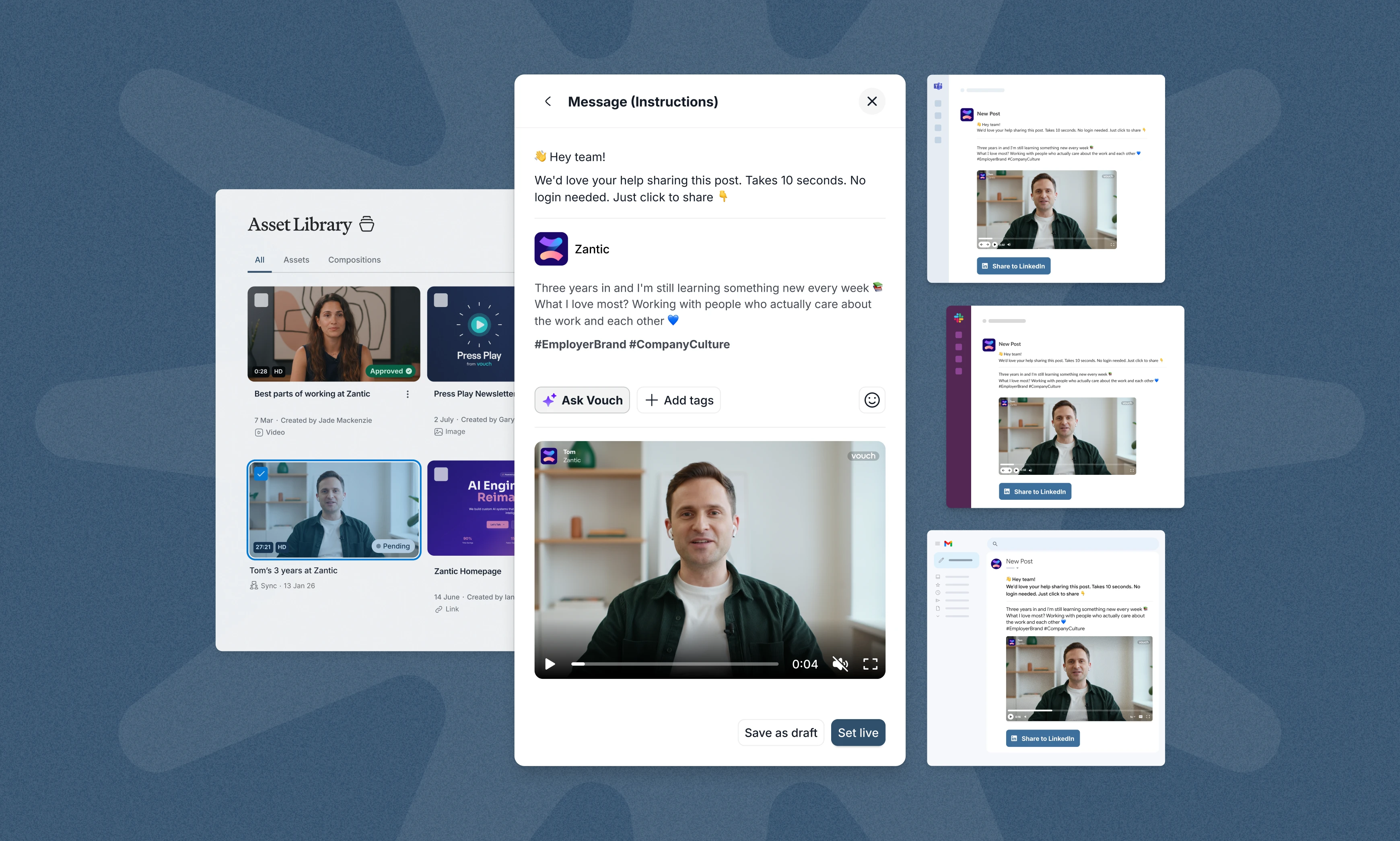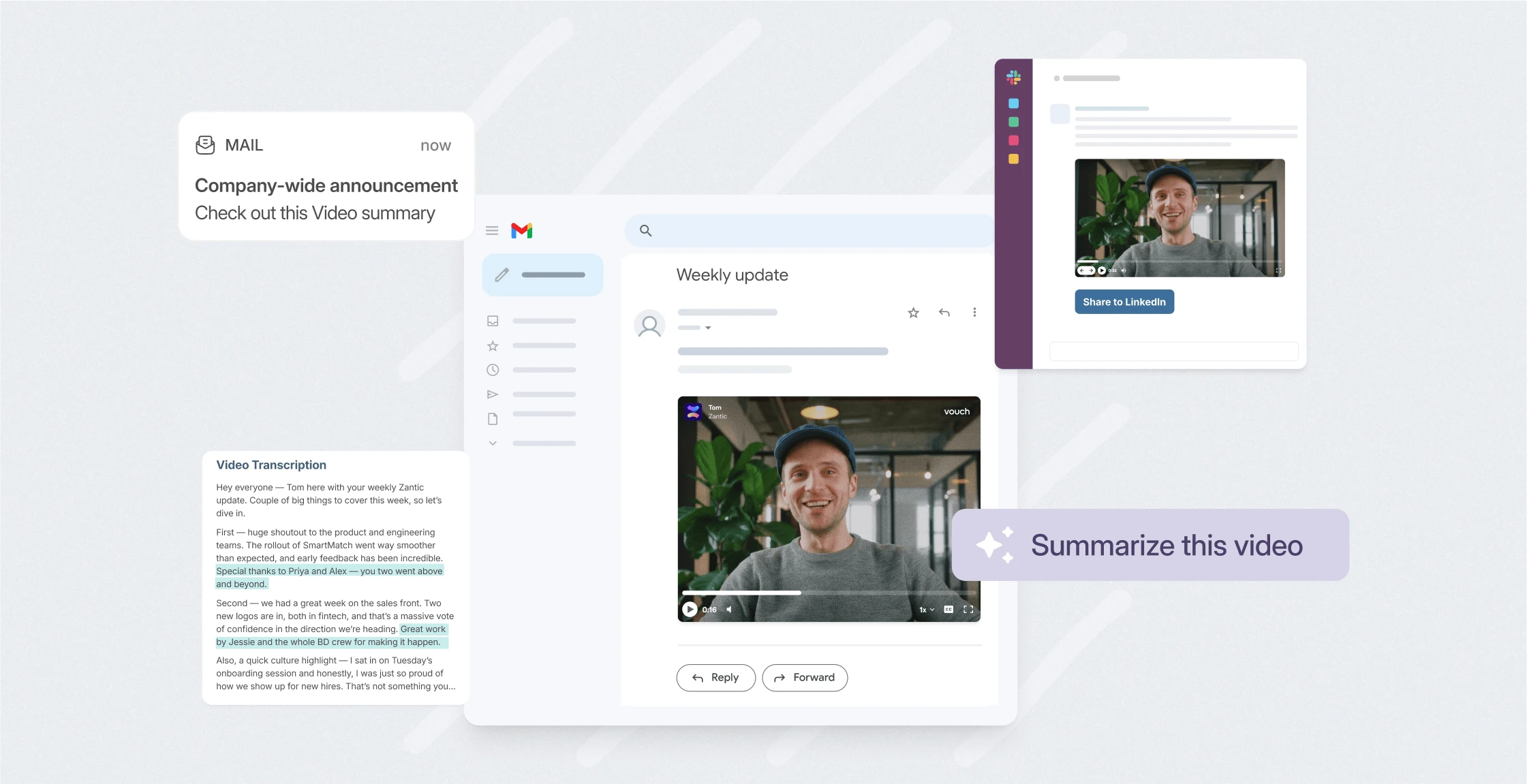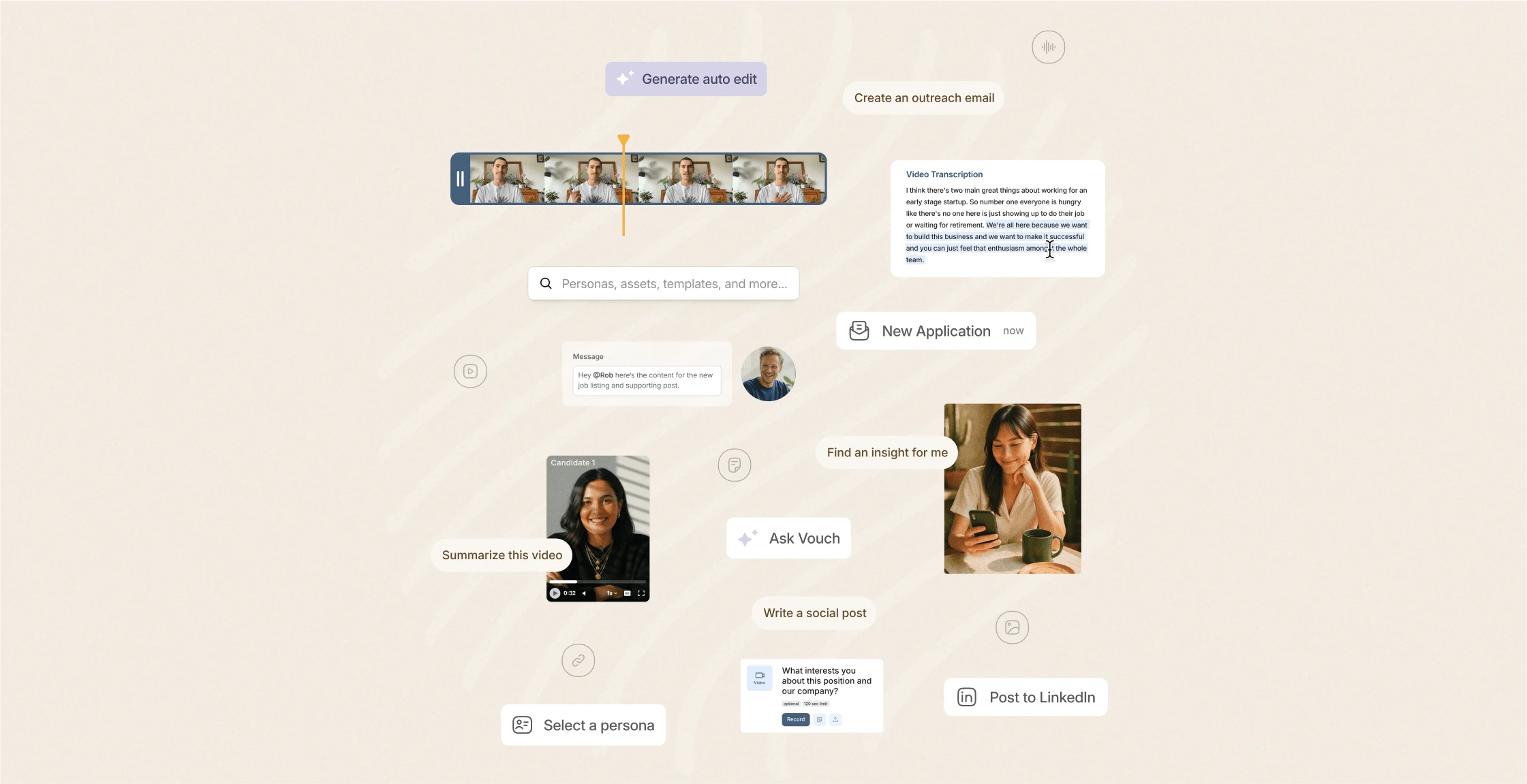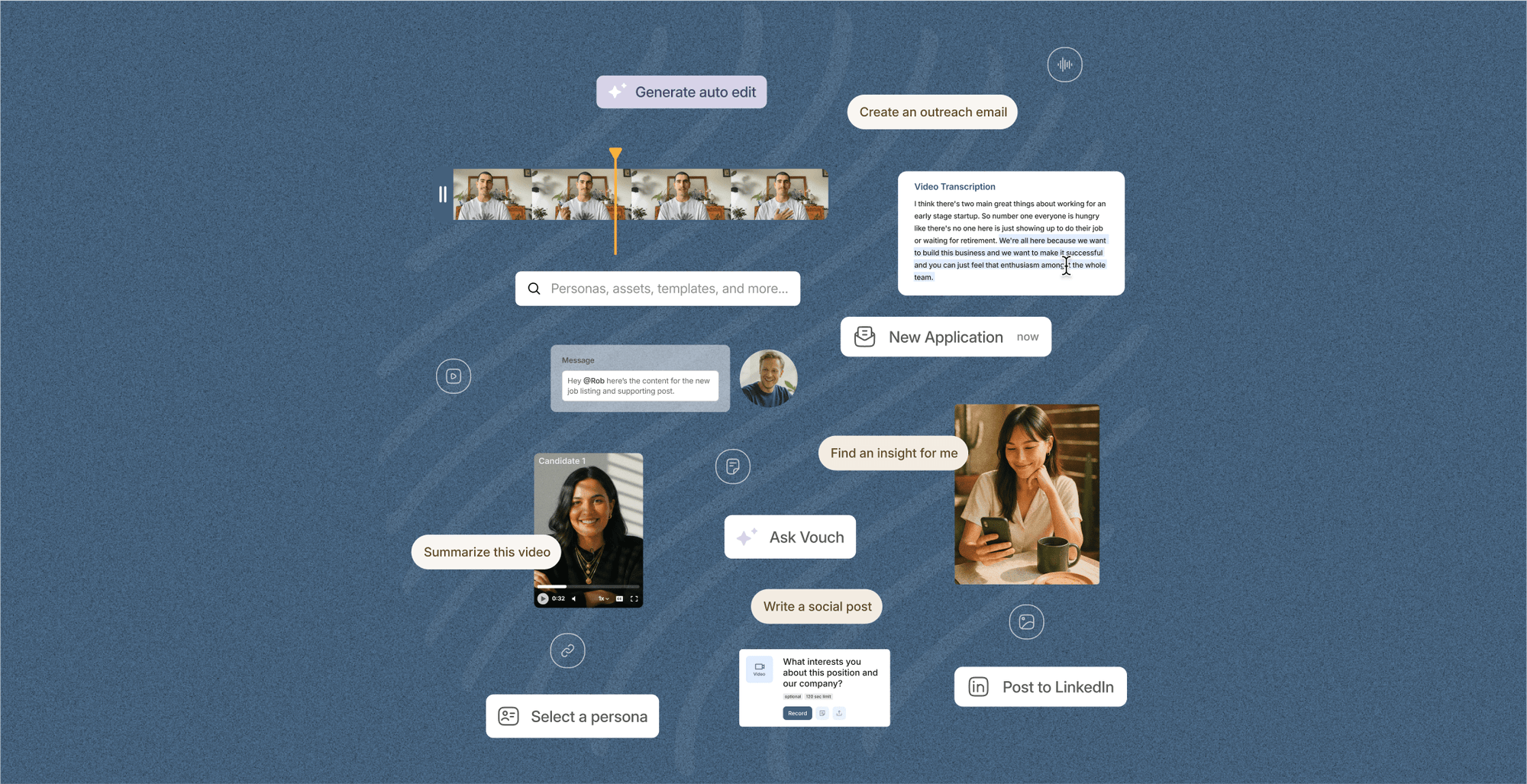Whether you're a start-up looking to onboard top talent or a larger company looking to refresh how people see you as an employer, your employer branding proposition is the foundation of your employer brand strategy.
Your employer branding proposition highlights what your organization stands for, what makes it unique and special, and it shows how you value your employees.
In 2026, the job market is looking to get even more competitive, so a compelling employer branding proposition is now more important than ever for attracting ideal candidates and keeping the best people.
Building a great employer brand, however, isn't a once-off, set-and-forget process. It's an ongoing strategy that you might need to change based on your data and industry trends, especially with technology like AI starting to really take hold in a lot of markets.
So let's get started!
What Is An Employer Branding Proposition?
An Employer Branding Proposition (EBP) refers to a company's unique value proposition or promise to its current and potential employees. It's the tangible and non-tangible "employer magic" that companies like Google, Disney, and more have managed to produce.
Your EBP is designed to attract, engage, and retain talent by highlighting the company's culture, values, mission, benefits, work environment, opportunities for growth, and other factors that differentiate it from other employers.
Key components of an EBP include:
- Company Values and Culture: Describing the core values, beliefs, and culture of the organization, showcasing what it's like to work there and the kind of environment employees can expect.
- Opportunities for Growth and Development: Outlining the career paths, learning opportunities, mentorship programs, and avenues for skill development within the company.
- Employee Benefits and Perks: Highlighting the competitive benefits package, flexible work arrangements, wellness initiatives, and other perks offered to employees.
- Work Environment and Employee Experience: Showcasing the work atmosphere, diversity and inclusion efforts, team dynamics, and the overall employee experience.
- Mission and Purpose: Communicating the company's mission, vision, and purpose and how employees contribute to achieving these broader goals.
- Employee Testimonials and Success Stories: Share the real stories and experiences of current employees to provide authenticity and credibility to the brand.
The AI-enabled workspace for talent teams.
- Unified workspace for talent teams
- Accelerate hiring with AI tools
- Auto-generate polished hiring and employer brand content
- Easily repurpose assets across all channel
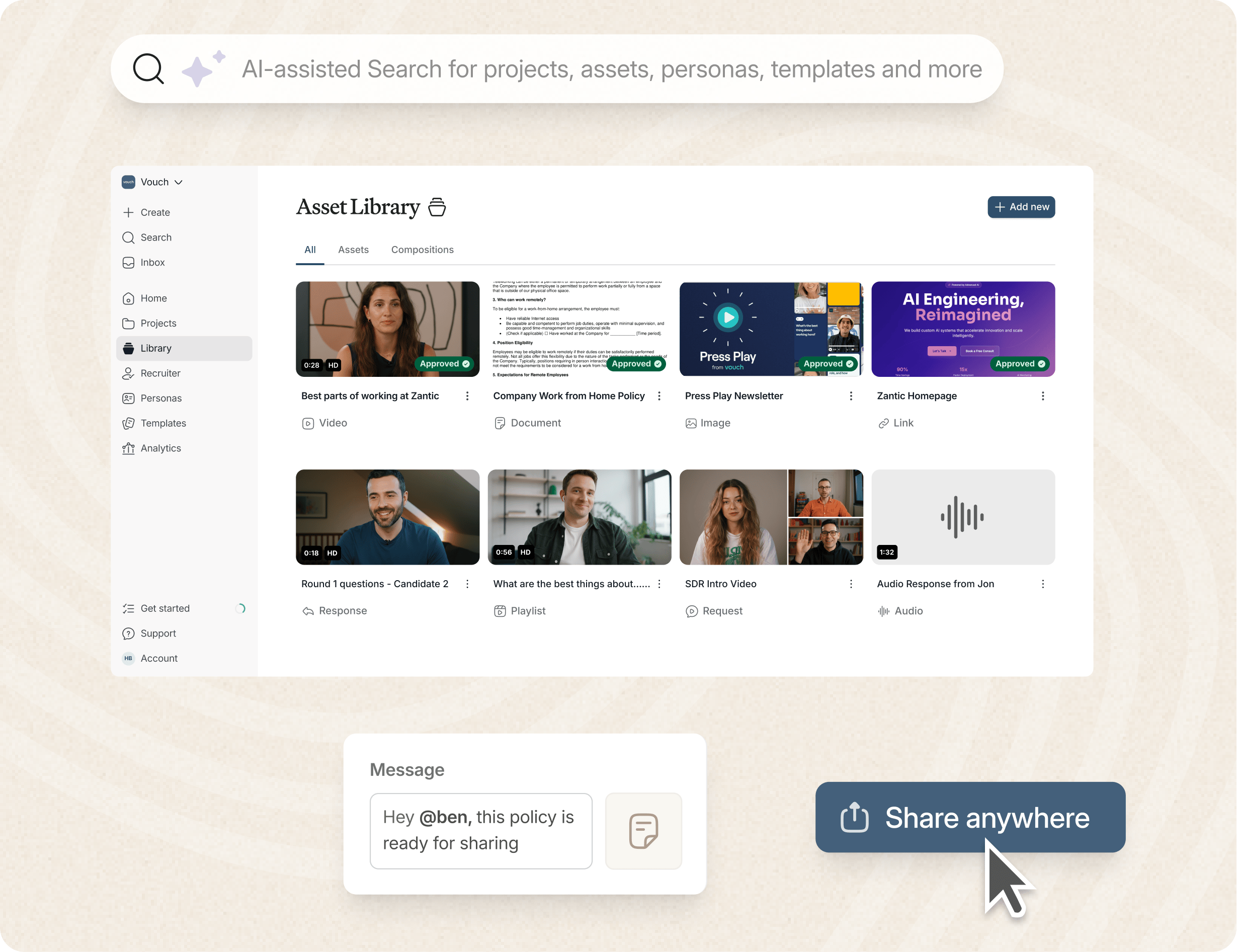
Does Your Employer Branding Proposition Help With Recruitment?
Absolutely, your Employer Branding Proposition (EBP) plays a significant role in recruitment. Here's how it helps:
- Attracting Top Talent: An effective EBP showcases your company's unique values, corporate culture, benefits, and work environment. When these aspects align with what potential candidates are seeking, it attracts ideal new employees. It not only draws candidates but also encourages those who resonate with your company's ethos to apply.
- Reducing Recruitment Costs: A strong brand attracts more qualified candidates organically. This can reduce the reliance on costly recruitment marketing strategies, thereby cutting expenses. Moreover, when your company is known for its positive workplace culture, it tends to attract more referrals from satisfied employees.
- Improving Candidate Quality: Candidates who are aware of and aligned with your company's values and culture are more likely to be a good fit for the organization. This alignment improves the overall quality of candidates applying for positions, resulting in better hires.
- Enhancing Candidate Experience: A well-defined brand provides clarity to candidates about what to expect from your company. This transparency and authenticity in conveying the work environment and culture gives a positive impact and contributes to a positive candidate experience, even for those who may not secure a position.
- Increasing Employee Referrals: A compelling employer brand encourages current employees to advocate for the company and refer new hires from their networks. Employees who are proud of their workplace and its values are more likely to recommend it to others, thus generating high-quality referrals.
- Boosting Retention: When the promises made in the employer branding proposition align with the actual employee experience, it fosters a sense of belonging and satisfaction among employees. This alignment often leads to higher retention rates as employees are more likely to stay in an environment that matches their expectations.
How Do You Measure Your Employer Branding Proposition?
Measuring the effectiveness of your Employer Branding Proposition (EBP) involves assessing various metrics and feedback mechanisms to gauge its impact on recruitment, employee engagement, and overall brand perception.
Here are several ways to measure the success of your EBP:
- Employee Surveys: Conduct surveys to gather feedback from current employees about their perception of the company's culture, values, and work environment. Ask specific questions related to how well the EBP aligns with their experiences and whether it influenced their decision to join or stay with the company.
- Candidate Experience Feedback: Collect feedback from candidates who applied for positions in your company. Ask about their impressions of your brand during the recruitment process, how well it matched their expectations, and whether it influenced their decision to apply or accept an offer.
- Employee Referral Rates: Track the number of employee referrals for open positions. A high number of referrals can indicate that your current employees are proud of the company and its culture, which reflects positively on your employer brand.
- Quality of Applicants: Analyze the quality of applicants who apply for open positions. Look at factors such as qualifications, experience, and cultural fit to assess whether your EBP is attracting the right talent.
- Retention Rates: Measure employee retention rates and compare them before and after implementing your employer brand initiatives. A positive brand often correlates with higher retention rates, as employees are more likely to stay in an environment that aligns with their expectations.
- Social Media and Online Reviews: Monitor social media channels such as Facebook, Instagram, LinkedIn and Twitter, review sites (like Glassdoor), and other online platforms where employees and candidates discuss their experiences with your company. Positive reviews and mentions related to your employer brand signify its effectiveness.
- Recruitment Metrics: Track recruitment-related data such as time-to-hire, cost-per-hire, and offer acceptance rates. A well-established employer brand often results in shorter hiring cycles, lower recruitment costs, and higher acceptance rates for job offers.
- Performance Indicators: Assess the impact of your employer brand on overall company performance indicators such as productivity, employee engagement scores, and business outcomes. A positive employer brand often correlates with improved business performance.
What Are Five Strategies For Improving Your Employer Branding Proposition?
Your Employer Branding Proposition also requires a sense of marketing, and you want to excite people and employees and get them inspired. Here are some best practices:
1. Create Messages That Make People Excited About Working for You
Making sure people know why your company is a great place to work is a big part of employer branding. This bit helps you understand how to explain why your company is special and why people should want to work there.
2. Use Video To Show What Makes Your Company Unique
Think about things like your company culture, how you help people grow, the good things about working there, and the overall work environment. These are the things that make your company stand out. Once you know what makes your company special, put it into a short and exciting statement.
This statement should match what your company is about and be aimed at the people you want to hire. It should explain why your company is a great place to work and what makes it different from others. Remember to keep it real. Don't promise things that aren't true or can't happen. Your statement should show what it's really like to work at your company and what people can expect.
3. Tell Real, Inspiring Stories About Your Team And Company
Stories are powerful. They can make people feel connected to your company. This part shows you why stories matter and how to make stories that make people want to work for you.
When you're telling stories, focus on the real experiences and successes of your workers. These stories should match your company's unique qualities and show how your company is good for its workers to grow to their full potential.
Like customer testimonials, think about sharing stories about how people have grown in their careers, stories of successful workers, and how your company offers unique chances and numerous benefits. Use real language and examples that make the stories feel genuine and creating an emotional connection.
Along with individual stories, create a storyline that goes across different ways of talking about your company. Make sure your story is about one main idea and use different ways to share it with the people you want to hire.
4. Ensure Everyone Sees the Same Message
Consistency is the key. Saying the same thing across all the ways you talk about your company is really important. This part explains why it matters to keep your message the same on your website, social media, job ads, and other places. This helps people understand what your company is all about.
Start by figuring out the main messages that show what your company is like. These messages should match your unique value proposition and be things that the people you want to hire will care about. When you know what these messages are, make sure they show up in all the ways you talk about your company.
Change the way you talk depending on where you are, but always make sure your main messages are the same. Adjust how you say things to fit where you're saying them, but keep your important messages the same.
Keep checking to see if your messages are working. Look at how well they do in different places and change things if you need to make them work better.
5. Use Strategies for Sharing Your Employer Brand
To make your employer brand strong, think about doing these things:
Use Social Media: Show people your company culture, values, and how your workers feel by using social media. Share things like stories from workers, photos from behind the scenes, and videos that let people know what your company is like.
- Get Your Employees Involved: Ask your workers to tell their friends about job openings at your company and give them rewards for doing it. This helps you find new workers through your workers and makes the people working for you feel good about where they work.
- Work With Others: Make friends with companies or people who are related to what you do. Doing things together, like events or projects, can make more people know about your company and give you a bigger pool of people to hire.
- Make Your Workers Your Ambassadors: Let your workers talk about your company in a good way. Ask them to share stories about their work and take part in things that show how good your company is. This makes more people know about your company through people who work there.
- Create Useful Content: Make things like videos, blogs, articles, and guides about your industry, how people can grow in their careers, or what your work environment is like. Doing this helps your company look like a leader and shows people what your employer brand is about.
Vouch video platform elevates your employer branding proposition strategy by enabling the creation of captivating videos showcasing your company's culture and values. These videos attract top talent by offering an authentic glimpse into your company, strengthening your brand.
FAQs
Why is an employer branding proposition important?
An employer branding proposition is important because it helps your company stand out from others and makes people want to work for you. When your employer brand is good, it shows people what your company is like and makes them excited to work there.
What is the difference between employee value proposition (EVP) and employer brand proposition?
The Employee Value Proposition (EVP) outlines the unique benefits and rewards employees receive in exchange for their skills and commitment, focusing on what makes the workplace attractive to current and prospective employees. In contrast, the Employer Brand Proposition defines the company's overall reputation as an employer, emphasizing its culture, values, and identity to attract top talent.
How can HR use an employer branding proposition to attract and retain a talented workforce?
HR can leverage an employer branding proposition to highlight the company's unique culture, values, and benefits, creating a compelling narrative that attracts and retains a talented workforce. By showcasing what makes your company a desirable place to work, HR can engage potential candidates and foster loyalty among current employees.
How does an employer branding proposition enhance employee retention and promote inclusion?
An employer branding proposition enhances retention by clearly communicating the company's commitment to employee well-being and career growth, while promoting inclusion by highlighting a diverse and supportive workplace culture.
What elements should be included in an employer branding proposition?
An effective employer branding proposition should include elements such as the company's core values, unique culture, career development opportunities, employee benefits, and testimonials from current employees. These elements help create a compelling narrative that attracts top talent and fosters a positive company reputation.
How can companies measure the success of their employer branding proposition?
Companies can measure the success of their employer branding proposition by tracking metrics such as employee retention rates, the quality and quantity of job applicants, employee engagement scores, and feedback from employee surveys.
What role does social media play in promoting employer brand?
Social media plays a crucial role in promoting an employer brand by allowing companies to share their culture, values, and employee experiences widely, engaging potential candidates and showcasing the company as an attractive place to work.
How can storytelling be used in employer branding?
Storytelling can be used in an employer branding proposition by sharing authentic employee experiences, success stories, and day-in-the-life narratives, which help potential candidates connect emotionally with the company and envision themselves as part of the team.
Conclusion
An Employer Branding Proposition stands as the cornerstone of a company's strategy to attract and retain top talent. As the job market becomes increasingly competitive in 2026, the significance of a compelling EBP cannot be overstated. It encapsulates the unique values, culture, benefits, and opportunities a company offers, influencing both recruitment efforts and employee retention.
The impact of an effective Employer Branding Proposition on recruitment is profound, and ultimately, a well-crafted Employer Branding Proposition serves as a magnet, drawing in talent that resonates with the company's ethos and fostering a mutually beneficial relationship between the employer and its employees.
This is also where modern tools like Vouch come into play, so you can easily interview employees, provide transparent weekly updates, build your brand, and attract top talent.
Improve Your Employer Branding Propostion with Vouch?
Loved by companies like Canva, Nike, Cisco, HubSpot, Amazon and more, tools like Vouch make leveraging video in your business remarkably easy.
Be sure to book a Vouch demo today and chat with a video content expert.
You might also like

Elevate Your Brand Today With Vouch
Discover how Vouch can accelerate talent acquisition while helping you stay on-brand.

